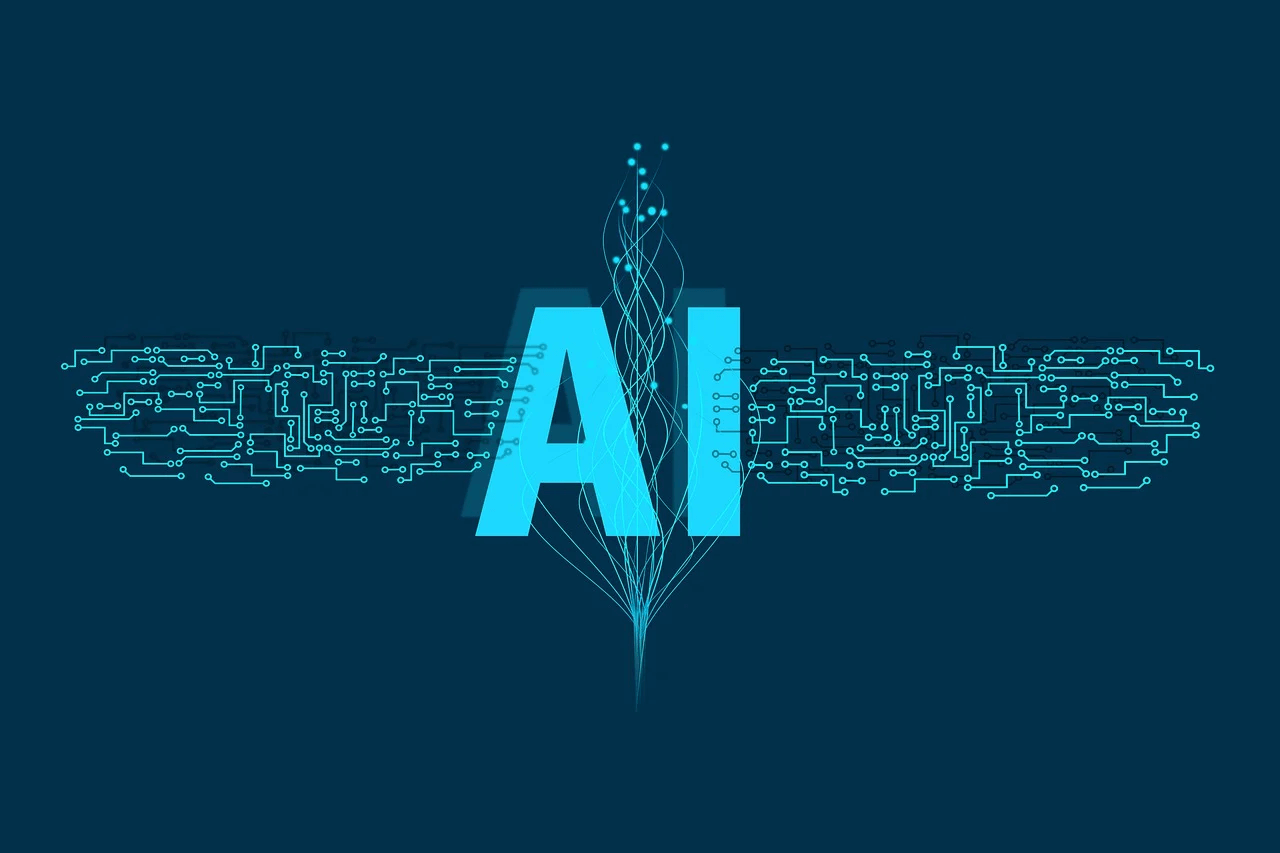
Today, customer service is on the verge of a major transformation. Artificial intelligence (AI), once a distant concept, is now an integral part of our daily lives and is fundamentally changing the way businesses interact with customers. In this age of digitization, companies are capitalizing on the vast potentials of AI to enhance their customer service operations, making them more efficient, personalized, and proactive.
The Emergence of AI in Customer Service
In the past, customer service was essentially reactive; customers reached out to businesses when they encountered problems, and companies responded accordingly. Today, with the advent of AI and advanced analytics, customer service has become increasingly proactive. Businesses can now anticipate customer needs, offer personalized solutions, and even prevent issues before they occur. They use intelligent platforms and AI-enabled services to analyze vast amounts of data, recognize patterns, and generate insights.
In essence, AI has emerged as a game-changer, offering a range of capabilities from automating routine tasks to driving strategic decision-making. The transformation in customer service is part of a larger trend of digitization in manufacturing and other industries, as businesses strive to become more efficient and competitive.
"In a world where customer expectations are constantly evolving, businesses that leverage AI to optimize their customer service operations are well-positioned to thrive in the digital age."
AI in Action: From Chatbots to Predictive Maintenance

AI has numerous applications in customer service, each promising to enhance the customer experience in its own unique way. One of the most common applications is the use of chatbots for handling routine inquiries. These AI-powered virtual assistants can respond to customer queries instantly, 24/7, freeing up human agents to handle more complex issues. They can also learn from each interaction, improving their ability to handle queries over time.
Another application of AI in customer service is predictive maintenance. By analyzing data from IoT sensors and historical maintenance records, AI can predict potential equipment failures and schedule maintenance activities accordingly. This can not only prevent costly downtime but also enhance customer satisfaction by ensuring that products and services are always available when needed. To leverage the power of predictive maintenance, businesses use smart services such as predictive maintenance tools that offer an integrated approach to equipment monitoring and maintenance management.
AI can also play a vital role in streamlining customer service processes. By analyzing data on customer behavior and preferences, AI can help businesses to personalize their services, improve their response times, and better understand their customers' needs. In this regard, the use of AI tools such as ticketing systems can help businesses manage customer interactions more efficiently.
AI is not only transforming the way businesses provide customer service, but also how they train their staff. With the use of AI in education and training, businesses can provide their employees with personalized learning experiences, helping them to enhance their skills and deliver better service to customers.
The impact of AI on customer service is evident in various success stories. By leveraging the power of AI and digitization, the company was able to significantly improve its customer service operations.
In conclusion, the infusion of AI into customer service operations is reshaping the customer experience. With the capability to automate routine tasks, predict future events, and generate personalized solutions, AI holds the potential to take customer service to new heights of efficiency and effectiveness. As the journey of AI in customer service continues to unfold, one thing is clear: businesses that embrace this technology today will be well-prepared to meet the customer service challenges of tomorrow.
AI and Personalized Customer Experience
As the digital age advances, businesses are recognizing the importance of personalized customer experiences. AI technology facilitates this by analyzing data and drawing insights about individual customer behavior, purchase history, and preferences. This enables businesses to tailor their services and communications to each customer's unique needs and expectations.
Businesses are using tools like Customer Portal to create personalized interactions with customers. For instance, a portal can use AI to track a customer’s interaction history and use this data to provide personalized product recommendations.
Another powerful example of personalization is the use of AI in checklists and instructions. By recognizing patterns in the data, AI can create personalized checklists and instructions that cater to individual customer requirements.
AI and Proactive Customer Service
One of the most exciting opportunities that AI presents is its ability to shift customer service from a reactive to a proactive approach. Instead of waiting for problems to occur, companies are now using AI to anticipate and prevent issues.
For instance, with Predictive Maintenance, companies can use AI to analyze equipment data, predict potential issues, and address them before they lead to downtime or disruption. This not only enhances operational efficiency but also significantly improves customer satisfaction.
"AI empowers businesses to stay one step ahead, predicting and preventing issues before they impact the customer."
AI in Streamlining Customer Service Processes
By automating routine tasks, AI can greatly enhance the efficiency of customer service operations. This not only reduces costs but also allows customer service representatives to focus on more complex and high-value tasks. For instance, with the use of AI-powered Ticketing Systems, businesses can automate the process of handling customer inquiries and complaints, ensuring that each ticket is assigned to the right representative based on their skills and availability.
Moreover, AI can significantly speed up the process of service optimization. By analyzing data on customer interactions, AI can identify bottlenecks in the customer service process and suggest ways to improve efficiency and effectiveness.
Building Trust with AI
Transparency and trust are essential in any customer service relationship. AI can play a key role here, especially in the area of data security. For instance, companies can use AI to detect and prevent fraudulent activities, thereby protecting the personal information of their customers. In the case of Parts Management, companies can use AI to keep track of the supply chain and ensure that each part is genuine, thereby building customer trust.
Enhancing Accessibility with AI
AI also has the potential to make customer service more accessible. With technologies like voice assistants and chatbots, businesses can provide customer service 24/7, regardless of the customer's location or time zone. This is particularly important in industries like manufacturing, where equipment can break down at any time, leading to costly downtime. For such scenarios, companies are increasingly using remote support solutions to provide immediate assistance to their customers.
In conclusion, AI is more than just a technological trend. It's a powerful tool that can transform customer service, making it more personalized, proactive, efficient, and accessible. By embracing AI, businesses can not only enhance their customer service operations but also gain a competitive edge in the market.
AI in Training and Support
AI is making a significant impact in the realm of customer training and support. Traditional methods of education and training often require significant time and resources. However, with AI, personalized learning experiences can be created that are more engaging, interactive, and effective. For instance, Education and Training with Remote Support allows businesses to provide real-time, step-by-step guidance to their customers, helping them to learn quickly and effectively.
Moreover, AI can be used to enhance After-Sales Service. By leveraging data on customer usage patterns, AI can predict when a customer might need support or maintenance, enabling businesses to provide proactive after-sales service.
"AI-powered support systems can drastically improve the quality of after-sales service, leading to higher customer satisfaction and retention."

AI in Understanding and Improving Customer Satisfaction
Understanding and improving customer satisfaction is crucial for any business. AI, with its advanced analytics capabilities, can help in this regard. Through analysis of customer feedback, reviews, and interactions, AI can provide valuable insights into customer sentiment and satisfaction. For instance, businesses can avoid 10 Mistakes in Customer Satisfaction by leveraging AI to better understand their customers' needs and expectations.
Additionally, AI can also assist in developing strategies to Improve Customer Satisfaction. By analyzing customer behavior and feedback, AI can provide personalized recommendations on how to enhance the customer experience.
AI in Minimizing Downtime
Minimizing downtime is essential for any business, especially in the manufacturing sector. AI can be instrumental in achieving this goal. With AI, businesses can carry out Condition Monitoring and predictive maintenance to anticipate potential issues and address them before they lead to significant downtime.
Furthermore, understanding the real cost and implications of machine downtime is crucial. Understanding Machine Downtime becomes simpler with the help of AI, which can analyze data and provide insights into the causes and costs of downtime, enabling businesses to take proactive measures to prevent it.
AI in Augmenting Reality for Better Customer Service
AI is also at the forefront of innovative technologies like Augmented Reality (AR). AR can significantly enhance the customer service experience, particularly in sectors like manufacturing and engineering. With AR, businesses can provide real-time, visual guidance to their customers, helping them to understand complex processes or resolve issues more effectively. The role of Augmented Reality in customer service is becoming increasingly significant, with its ability to bridge the gap between the digital and physical worlds.
Concluding Remarks
In conclusion, AI is revolutionizing customer service, making it more efficient, proactive, personalized, and customer-centric. However, the successful adoption of AI in customer service requires a strategic approach. It's not just about implementing the latest AI tools, but also about integrating these tools effectively into the customer service workflow and aligning them with the business's overall objectives. By doing so, businesses can fully leverage the potential of AI, delivering exceptional customer service that drives satisfaction, loyalty, and ultimately, business success.
FAQ
-
What is the role of AI in customer service?
- AI is revolutionizing customer service in various ways, including offering personalized interactions, providing proactive service, automating routine tasks, enabling real-time customer support, and using advanced analytics for customer insights.
-
How can AI improve after-sales service?
- AI can improve after-sales service by analyzing customer usage data to predict when a customer might need support or maintenance, enabling businesses to provide proactive, timely, and effective service.
-
Can AI enhance customer training and support?
- Yes, AI can significantly enhance customer training and support. AI can be used to create personalized and interactive learning experiences, and also offer real-time, step-by-step guidance to customers.
-
How can AI help in improving customer satisfaction?
- AI can help improve customer satisfaction by analyzing customer feedback, reviews, and interactions to provide valuable insights into customer sentiment and satisfaction. Additionally, AI can develop strategies to enhance customer experiences based on personalized recommendations derived from customer behavior analysis.
-
What is the role of AI in minimizing downtime in manufacturing?
- AI can help minimize downtime in manufacturing by carrying out condition monitoring and predictive maintenance. This helps to anticipate potential issues and address them before they cause significant downtime. AI can also analyze data to provide insights into the causes and costs of downtime.
-
How does AI augment reality for better customer service?
- AI can leverage augmented reality (AR) to significantly enhance the customer service experience. AR can provide real-time, visual guidance to customers, helping them understand complex processes or resolve issues more effectively.
-
What are the key considerations for successful adoption of AI in customer service?
- Successful adoption of AI in customer service requires a strategic approach that includes not only implementing the latest AI tools, but also integrating these tools effectively into the customer service workflow, aligning them with the business's overall objectives, and focusing on customer-centricity.